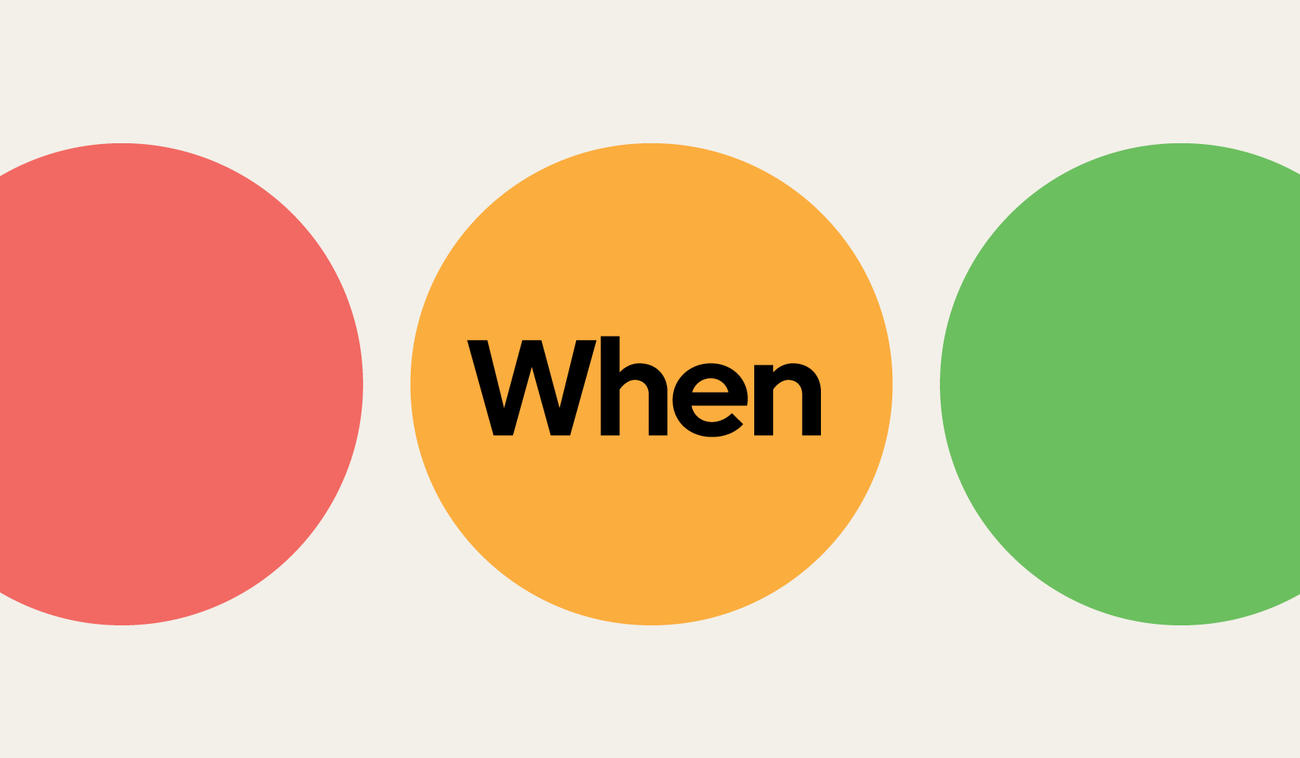
When should you quit that job? When should you sit an exam? When is the best time of day for a hospital procedure? Have you ever wondered these things? Daniel H. Pink has. Drawing on a rich trove of research from psychology, biology and economics, his latest book, When: The Scientific Secrets of Perfect Timing, unlocks the scientific secrets to good timing to help you flourish at work, school and home.
We’ve collected some fascinating facts from this thought-provoking and motivational book that’s already had some members of the Text office quietly rescheduling meeting times and holding off on their coffee intake for an extra hour or two.
When do people generally feel happiest during the day?
a) 8 a.m. – 9 a.m.
b) 12 p.m. – 1 p.m.
c) 8 p.m. – 9 p.m.
C – we can still feel pretty happy at the other two times, but most of us are at peak happiness in the evening.
When do we generally feel our lowest during a work day?
a) 8.30 a.m.
b) 2.30 p.m.
c) 3.30 p.m.
C again! But 2.30 p.m. comes a close second. Feeling like you just want to crawl under that desk? Maybe you should take a restorative break.
And speaking of breaks…
When you take a break at work, what’s the best way to do it?
a) Sit at your desk for 15 minutes, not doing any work
b) Go for a 15-minute walk around the office
c) Go for a 15-minute walk around the office with a friend
d) Go for a 15-minute walk outside with a friend
All are great, but D is the best way to restore your sense of wellbeing and general alertness. Some conversation and time spent in the great outdoors is the best way to take your mind off the pressures of work.
When you wake up in the morning, which of the below will help give you the best start to the day?
a) Drink a glass of water when you wake up
b) Don’t drink coffee immediately after you wake up
c) Soak up the morning sun
d) Schedule talk-therapy appointments for the morning
All of the above!
Water rehydrates you fast after so many hours with no liquids.
Caffeine interferes with the production of cortisol, which is what our body is trying to produce to help us wake up.
The sun, unlike most lightbulbs, emits light that covers a wide swathe of the colour spectrum. Getting some rays signals to your brain to stop producing sleep hormones.
Therapy sessions in the morning allow you to benefit from your higher cortisol levels that in turn help you focus and absorb advice more deeply.
And speaking of deeply…
When is the best time of day for a colonoscopy?
a) 9am
b) 11am
c) 3pm
A: the earlier the better. In a study of more than 1,000 colonoscopies, polyp detection decreased by 5 per cent for every hour that passes in the day.
When is the best time for an afternoon nap?
a) Between 1 and 2 p.m.
b) Between 2 and 3 p.m.
c) Between 3 and 4 p.m.
According to the Mayo Clinic it’s B, but When will show you how to figure out the optimal time for you.
When will also tell you the best time is to book a work meeting, the best time of day to sit an exam, the best time to get married and even when to switch careers.
Filled with questions to get you thinking about how you go about your day, When is an insightful book that will help you lead a richer and more engaged life.
When: The Scientific Secrets of Perfect Timing is available now in all good bookshops, on the Text website (free postage!) and as an ebook.



